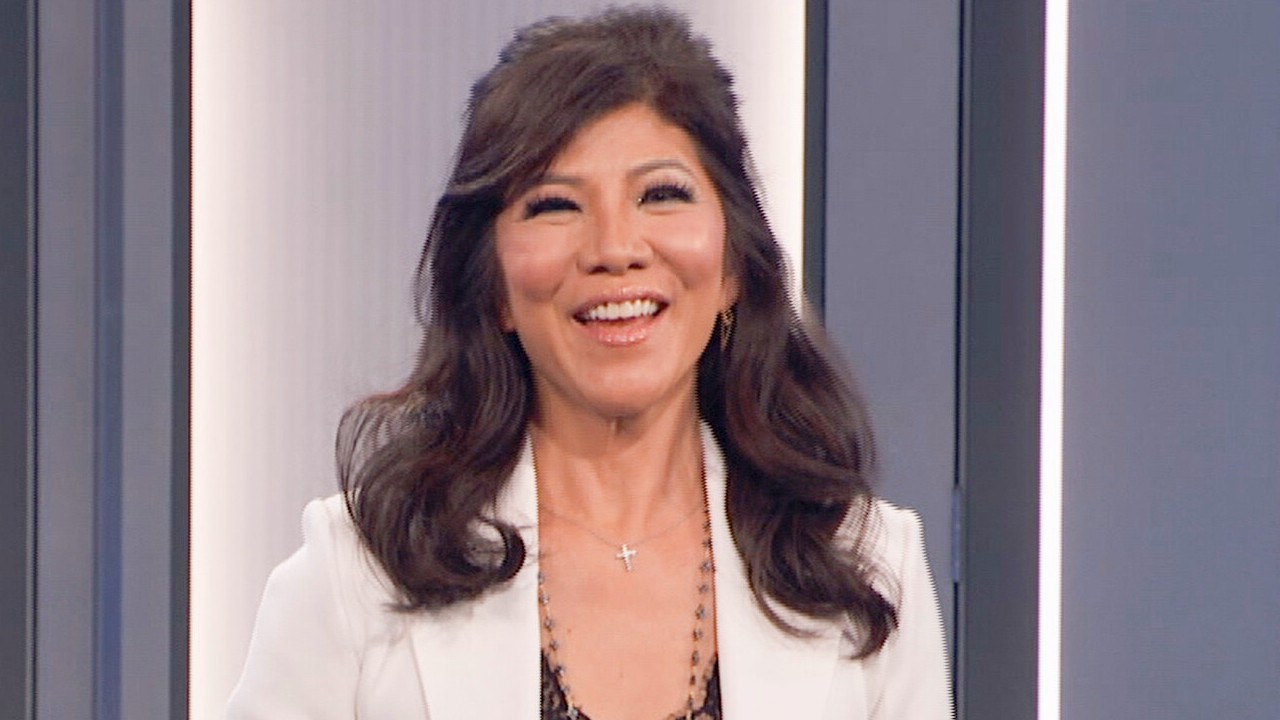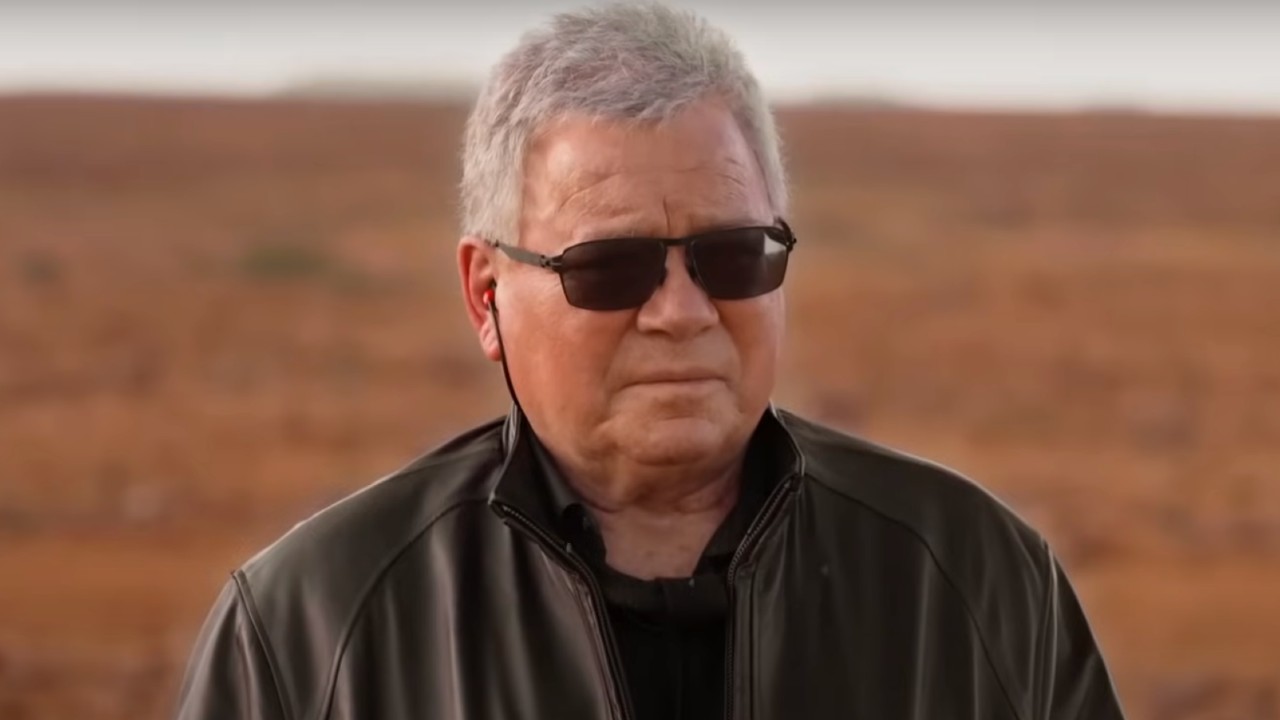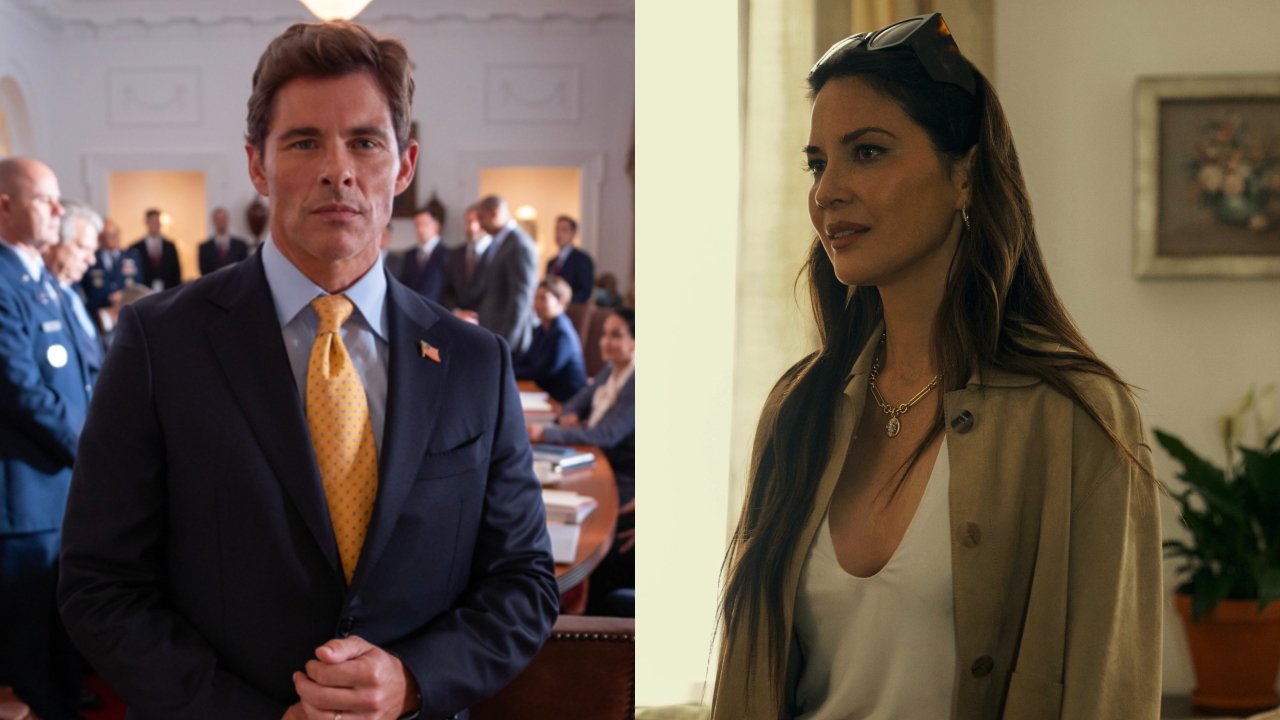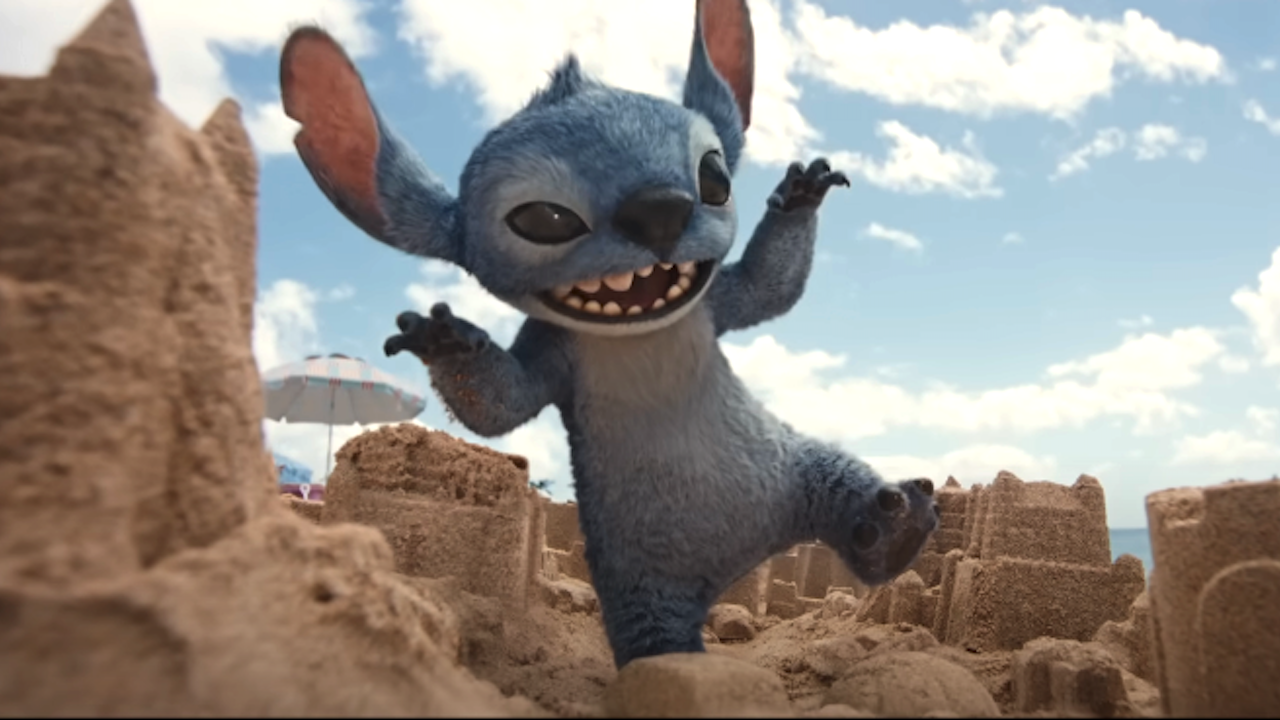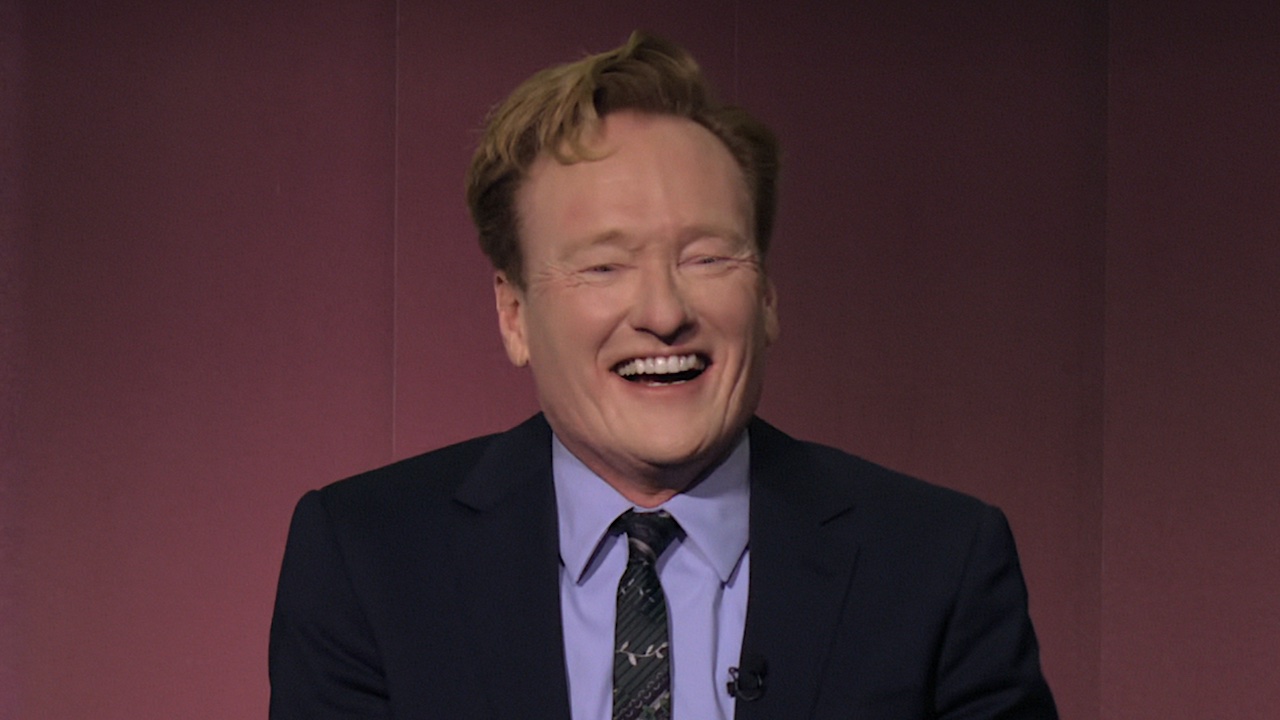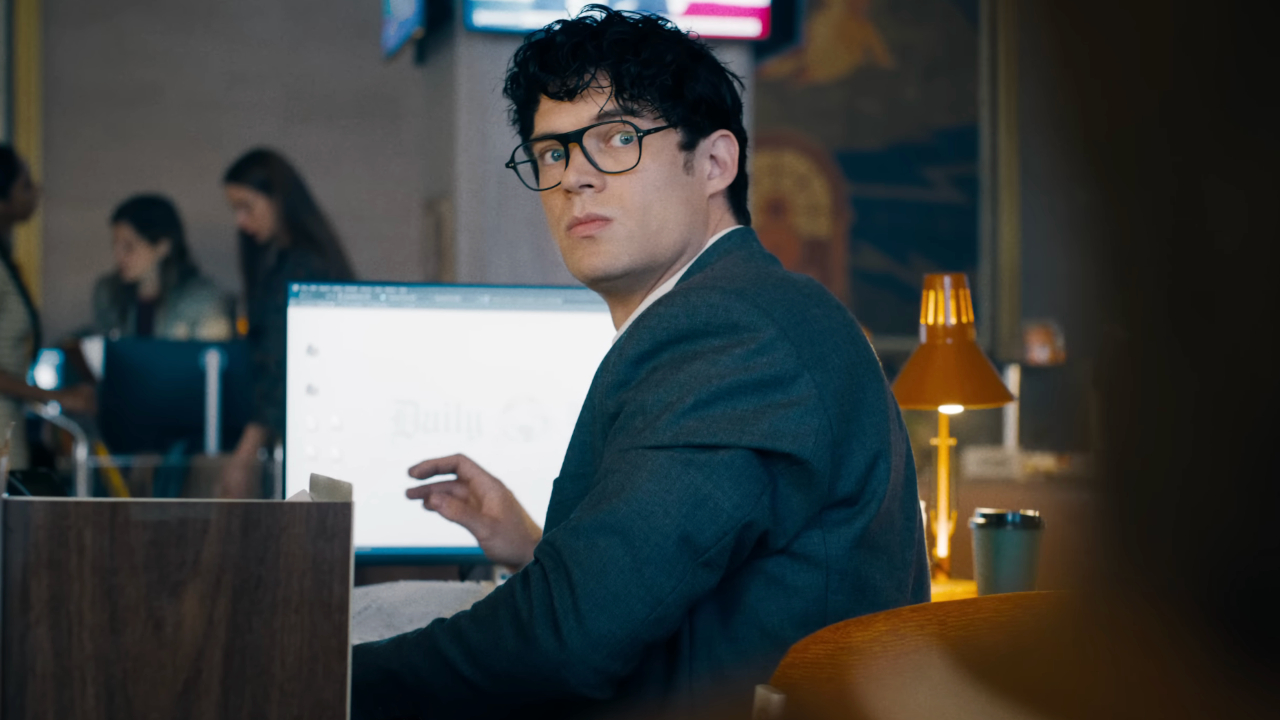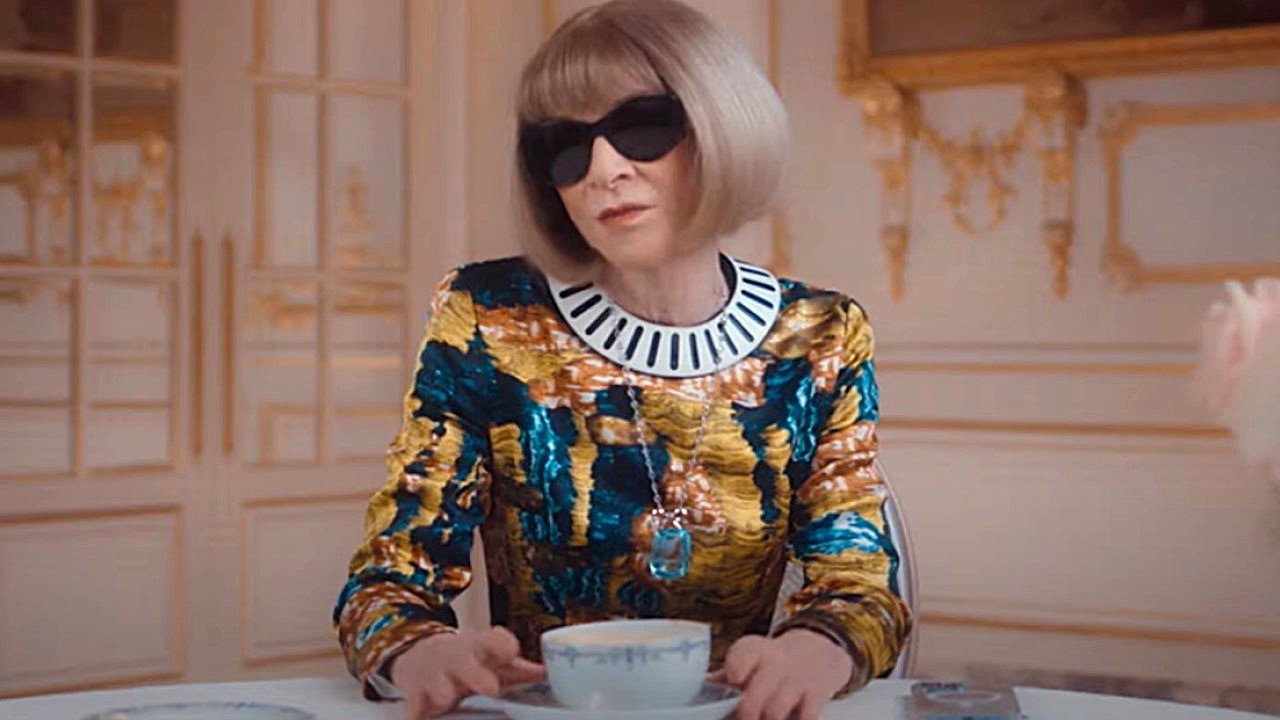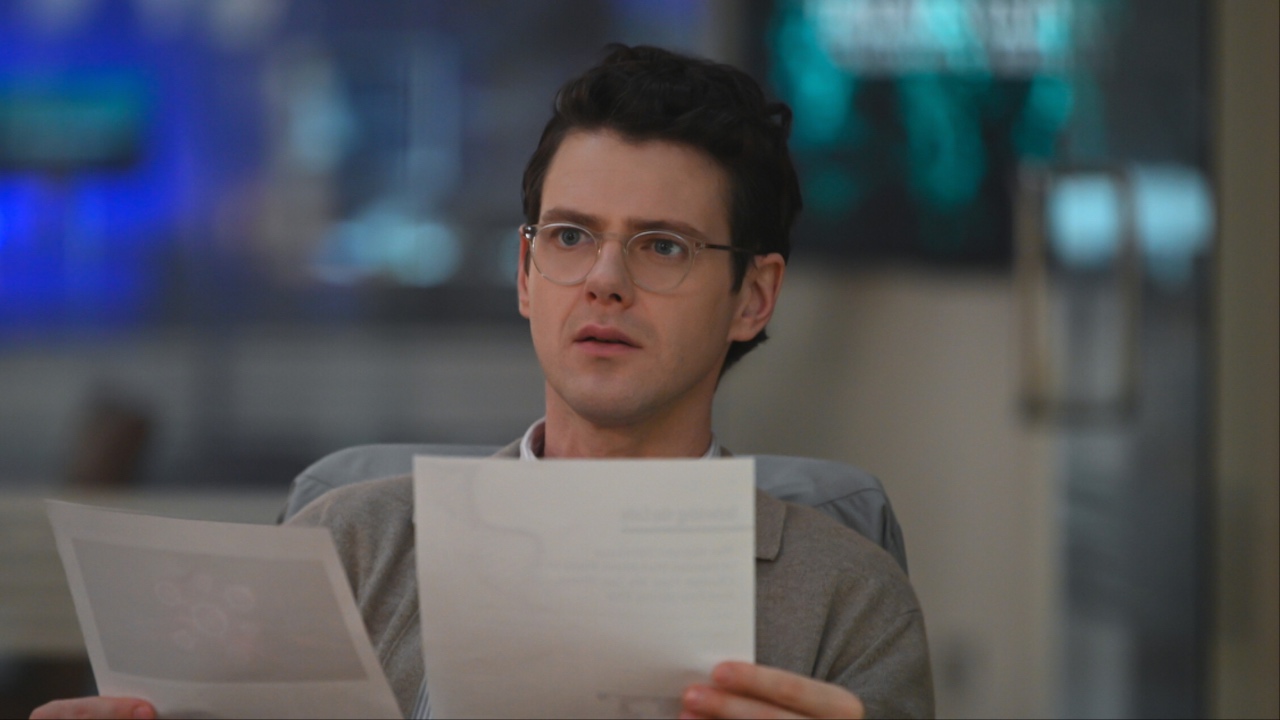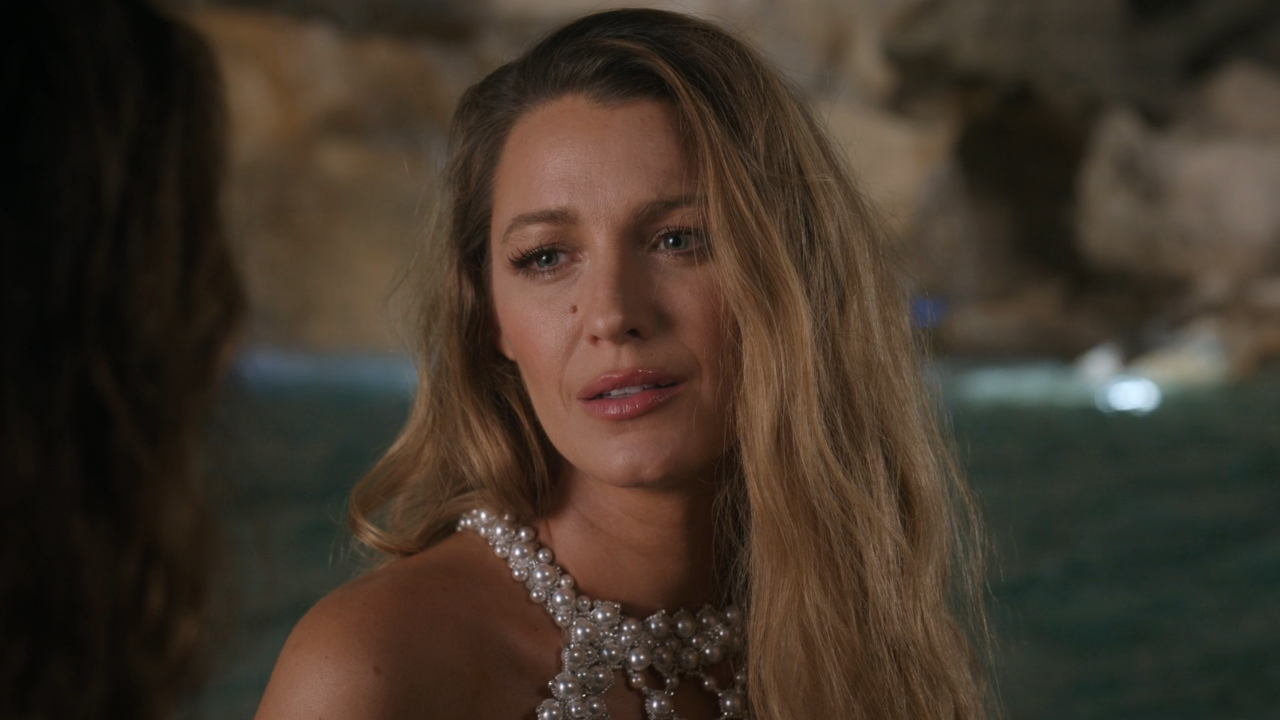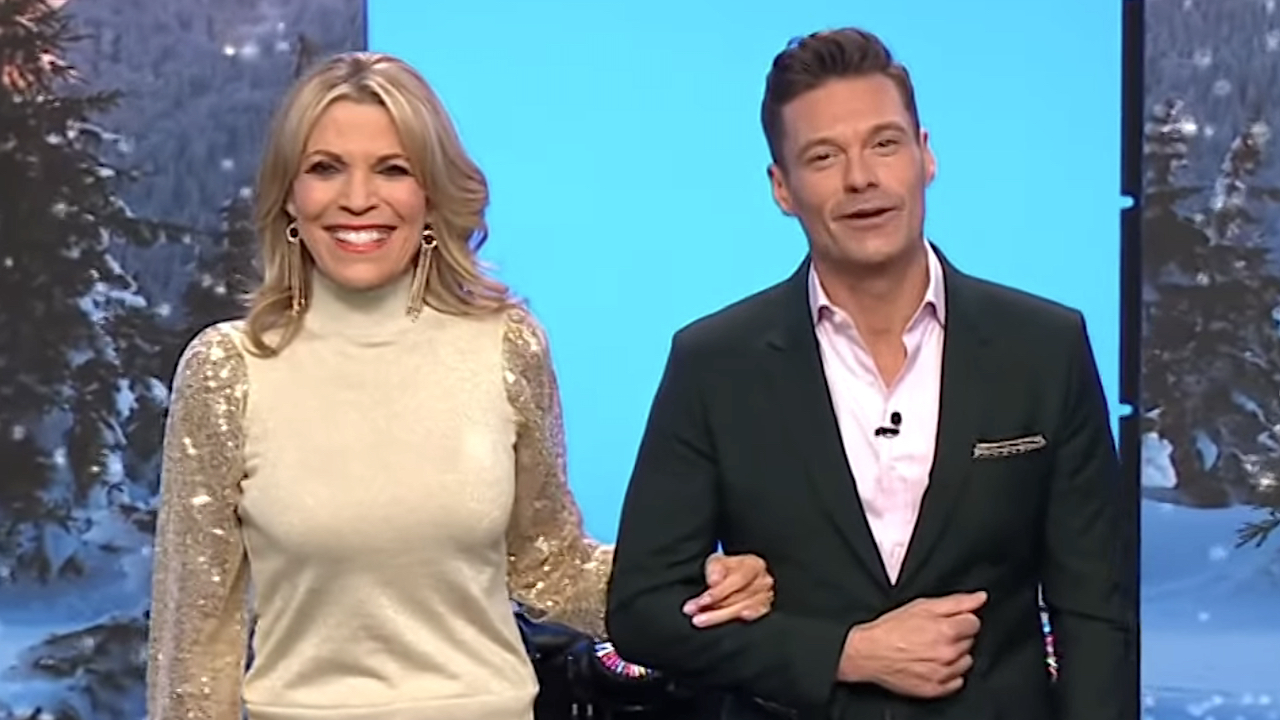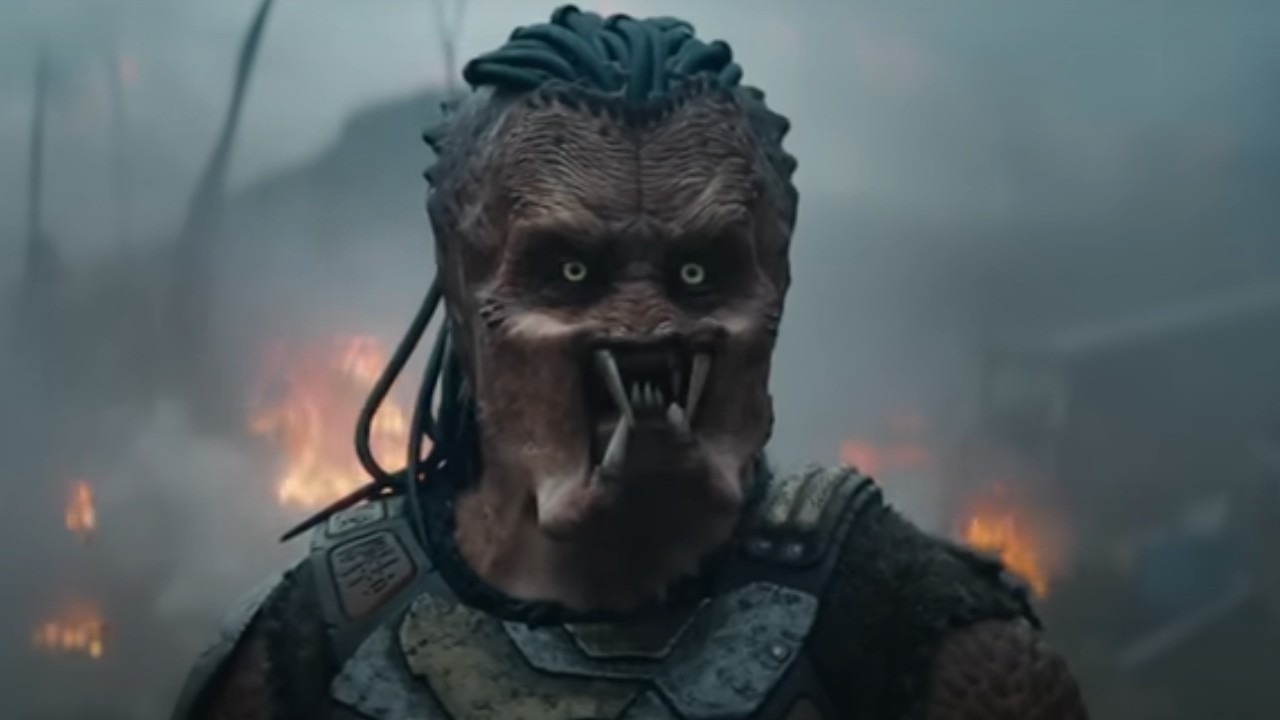Interview: Battle: Los Angeles' Adetokumboh M'Cormack
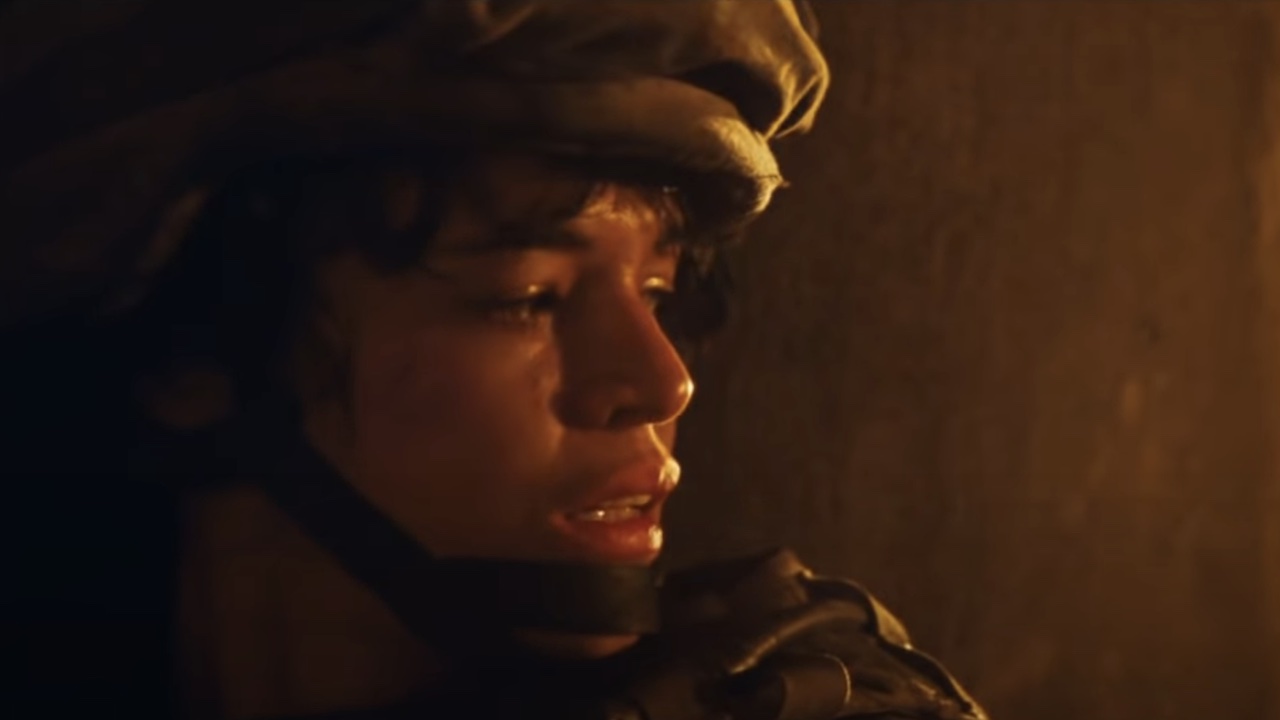
When you think Battle: Los Angeles, odds are, you think of Aaron Eckhart. Well, Eckhart may play the leader of a platoon of soldiers going into battle against invading aliens, but it's be worth your while to get to know some of the Staff Sergeant’s men.
Adetokumboh M’Cormack is Corpsman Jibril Adukwu, the group medic. Like his co-cast, M’Cormack had to go through boot camp training, but he had the added assignment of learning the ins and outs of being a Marine medic as well. The key to this role was being as in touch with the character as possible and in that sense, M’Cormack and the rest of the cast went above and beyond.
During our recent interview, M’Cormack shelled out tons of details from the entire process from working hard during training, to taking what he learned to set and even the friendships that remained after shooting wrapped. Based on our conversation, it seems as though Battle: Los Angeles might actually not be your run-of-the-mill alien invasion film, rather a wholly real-feeling experience and, if that is the case, we really have something special to look forward to. To hold you over until the battle begins on March 11th, check out what M’Cormack had to say about working on the film.
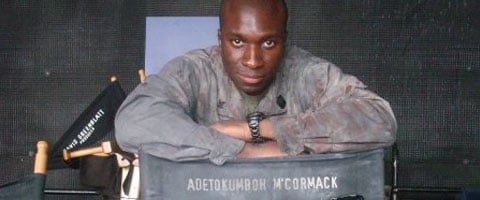
Can you tell me about your character?
Adetokumboh M’Cormack: I play a character called Corpsman Adukwu. He’s originally from Nigeria and basically, my character’s a medic that goes along with the platoon lead by Aaron Eckhart’s character and we go into battle. We try to save the world against the aliens.
Where does he fall amongst the other soldiers? What makes him stand out as a person?
I think his history. The character originally is from Nigeria so he has a different background from the other characters and he brings definitely a different back-story. Before we started the film, the director asked us to create back-stories for our characters; my back-story was really interesting because it told of a character that went through war, that went through a lot of problems and ultimately came to American to just try to become a better person, become a doctor. It’s interesting that he came to be a better person and try to get a better life and then ultimately ends up being part of this war against an alien species he’d never imagine to encounter.
CINEMABLEND NEWSLETTER
Your Daily Blend of Entertainment News
How’d you approach this back-story work? Did you keep a journal as your character or something like that?
I wrote a journal. He also gave us a little bit of a back-story and I went off and made my own and just made my character more complete and more multifaceted, so to speak, and just made him more interesting. When you see these characters on screen, you buy that they are people with lives and with histories. It’s more relatable that way so you’re just not seeing these two-dimensional characters on the screen; you’re actually seeing real people.
And in terms of the physicality of the role, I hear the boot camp you guys went through was pretty tough.
Yes, I went through three weeks of boot camp prior to filming, which consisted of waking up at five in the morning and running several miles and learning how to shoot those weapons, like M4s and M16s and 50 cals, and we ended up learning the different terminology that Marines use just so that we could be as authentic as we could. [Director] Jonathan Liebesman really wanted to make a movie that felt real on all levels and so that meant us going to boot camp and getting our butts kicked. [Laughs] But, ultimately, he wanted us to just appear to be real Marines on screen.
Was there any one part of that boot camp that kicked your butt the most? Neil Brown Jr. told me he wasn’t a fan of the running.
[Laughs] That was hard! Yeah, the running was hard because I do a lot of running as is, but seeing these men, the Sergeants who were assigned to do our training, just seeing them run so much faster, do everything so much stronger, so much harder, that was the difficult part because you’re thinking, ‘I’m in really good shape,’ and when it came down to it, you realize you’re not in that great shape with someone who is twice your age and kicking your butt. [Laughs]
Did it change your impression of people in the military?
It did. I have an enormous amount of respect for people in the military. I think our training, it wasn’t a real boot camp in that sense. I think it was a close as we could get to being real Marines and just the amount of work that goes into it, the amount of physical, emotional work that goes into being a Marine, it’s really intense and I definitely respect them so much more at the end of it.
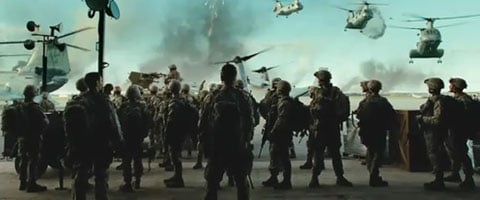
How was it bringing what you learned in boot camp to set? Did you go right from one to the other?
Yes, as soon as we finished boot camp we went straight into work and we used everything we learned. The way that we handled the weapons, the way that we walked in and cleared a room, just the way related to each other, the way we fired our weapons, we brought all of what we learned in boot camp into the film. Jonathan Liebesman, sometimes he would ask us to improvise and so I’m really glad we had that boot camp training because it allowed us to pretty accurately improvise dialogue in certain situations. In addition to my boot camp, I also had to learn certain things medics would do in the field, so if someone had a certain type of injury I’d have to learn how to use quick clots to stop the bleeding or have to learn to bandage a wound a certain way. Jonathan would actually call on you to do things like that just out of the blue sometimes. He’d be like, ‘Listen, if this situation happens like this, what would you do?’ and then film it, so you’d have to be on your toes at all times. For four and a half months you were living and breathing this character.
Did anyone on set actually ask you for medical help?
[Laughs] Yeah, that would actually happen! They’d be like, ‘Doc, I need help with such and such,’ and sometimes I’d actually know what to do! I’d actually have a kit, you’ll see in the film, there’s this item that I carry and it has all this first aid equipment and so I was always ready should something happen. And that kit was really really heavy. All through the film you actually see me carry around a real life first aid kit and the idea was that sometimes when people were injured I would have something on me and I could offer my medical assistance. We also had real medics on board as well, so if it was something too serious of course I wouldn’t [laughs]. We definitely blurred the lines between reality and unreality.
And what about for your stunts? Did you do all of your own stunts or did you need a double for anything?
Jonathon really encouraged us to do our own stunts and we did a lot of the time. Ne-Yo did a lot of his own stunts and I did a couple of my own stunts as well. Actually, also [Jonathon] really didn’t want people to be taken out of the reality of the film, so what you’re seeing when a lot of the stuff happens is that you’re seeing the actual actors do their own stunts. And, of course, the more dangerous ones we would have our stunt doubles do those, but sometimes we did pretty risky stunts and thankfully we were okay. We never felt that we were in harm’s way. We had Joey Box, who is one of the best stunt coordinators in the business; he was fantastic and just made us feel really safe and went through each stunt over and over again and you have a team of people who made sure that we were completely comfortable and made sure that we never did anything that we didn’t want to do,
What was the shooting process like during those stunt-heavy moments? Were there a limited number of takes per shot because of heavy effects and explosion?
Ideally you don’t want to spend a lot of time on a stunt. Sometimes you’d have maybe two or three takes to get it right, sometimes just one. The rehearsal process was pretty intense. We’d rehearse it over and over again and sometimes they’d have the stunt double rehearse it two times, so you’d see the stunt double do it and then you go ahead and do the stunt. They tried to make sure you got it within the first couple of takes, if not the first take.
And what about just organizing all of the primary cast and extras?
We shoot fast. Thankfully we had really good production assistants and assistant directors who were able to just gather everyone together and just make sure that the scene flowed really well. If you think about it, you have scenes where you’re on the Santa Monica streets and you have hundreds of extras and just coordinating them was almost like coordinating a little town!
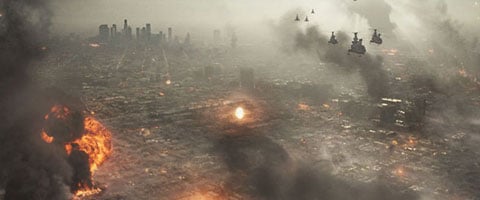
You also mentioned Jonathan wanted you to improvise quite a bit. How was it incorporating that in such a structured environment?
It was interesting. We’d shoot the script pretty much a couple of times and then sometimes he’d ask us to adlib a little bit and the great thing was, because we were all so in tune in our characters and in tune with our relationships with each other that we were able to just go, but still stick within the confines of the story and ad lib within the structure of the story, so it wasn’t too far off. I’m just looking back and I just watched the film for the first time last week and it works so well. We just all knew our characters so well and we knew each other so well, we knew our relationships, who we liked, who we didn’t get along so well with, who our best friend was in the platoon, who you’d die for, who would be your best man at the wedding, all of those things. Those were questions we all asked ourselves during boot camp just to make sure that when filming started, it wasn’t something we thought about, it was just something that organically happened.
Even beyond just coming up with your own dialogue, you also had to come up with some of your own visuals. How much of what we’ll see on screen did you actually get to interact with on set?
Well, there was actually a balance. There’s a lot of green screening. There’s the highway sequence, for example, where there’s a lot of explosions and alien aircrafts and all these things, so a lot of that was just using your imagination. We had to call on our imaginations a lot during this film, but then there were also a lot of times where you have real life explosions and they had tons and tons of explosions going off simultaneously and that made you really feel like you were essentially in a war. Sometimes in a scene you would have the props/weapons guy, he’s firing bullets off screen and then an explosion goes off to your left and another explosion to your right, so you’re responding to real explosions. You don’t really have to imagine [laughs], it’s actually happening right then and there. And then of course, with the aliens, sometimes we’d have to imagine the aliens were there, but sometimes they would have these guys in these motion wrestling suits and they were on these elevated pogo shoes and so we would basically be responding to them. They would be representing the aliens and sometimes it was terrifying because these guys were just so great at embodying the aliens and the way they moved, and the way they attacked and so it was great to have that to respond to.
Wow, it sounds like you guys had to know exactly what was going on everywhere as much as Jonathan did!
[Laughs] I definitely felt like it was a collaborative process, but Jonathon definitely held this movie. The man is a genius. I think he’s completely retimed the alien, sci-fi, action genre. It’s the way we have the battles; battles are urban combat, you’re not being sought after in the sky. You’re actually engaging in a war on the ground. He really created a film that I’ve never seen like this before. Watching it just blew me away. I was completely blown away by what I saw because he asked us at the beginning of filming just to trust his vision. He had an idea and he showed us a presentation of test footage that he shot on Sony lot prior to coming down and I remember thinking, ‘Okay, how are we going to set ourselves apart from any other sci-fi alien invasion film,’ and then I watched that and got completely blown away and completely trusted his vision and I’m glad I did because it’s truly amazing.
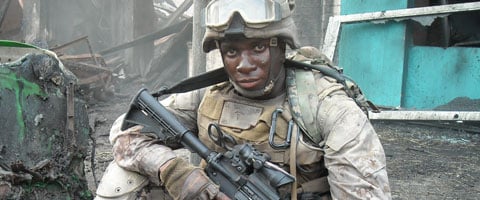
He’s directed a few movies, but never anything on this scale. Do you think not being saturated in Hollywood blockbusters helped make this a more grounded production? Do you think he’s the right guy to do the second Clash of the Titans film?
I think possibly because he was able bring just a reality to this film. He was able to bring something different, so it’s not just a big blockbuster film; it’s a film that’s gritty, it’s real, it has a lot of heart and I think that’s probably what he’s also going to bring to Clash 2. It’s going to be something that people are going to just be able to relate to more with action, but also with a lot more substance. So, yeah, Jonathon definitely is the man. I think he’s the next director to look out for, honestly.
Can you tell me about working with some of your co-stars? Who’d you get to work with the most?
It’s funny; these guys now are like my best friends. [Laughs] At the end of the experience we felt like we’d gone to war and back. I’d say I had a lot of my scenes with Cory Hardrict, who is just a tremendous actor, and also, of course, Ne-Yo. Neil Brown Jr. was a lot of fun to work with. He always made us laugh. He’s very similar to his character, funny enough. And Will Rothhaar, great guy, definitely a lot like a brother to me. And, of course, Michelle Rodriguez. I spent a lot of time working with her and getting to know her and she’s just a wonderful lady.
Do you have anything else in the works?
I’m writing and producing a movie that’s set in Africa and I’m starring in it as well. And we start production pretty soon actually, so that’s my next big project that I’m focusing on.
How do you feel about wearing three hats for one film? Have you ever done anything like this before? Write or produce?
Only with shorts and things like that, so this will be my first venture into putting on the producing hat for a feature as well and so that’s a whole different experience. It’s a lot harder than I thought it was going to be [laughs], but it’s a lot more fun because it’s basically bringing something you created and seeing it to fruition. I’m excited about it. I think the character that I play in this is a lot closer to who I am and I think a lot of people don’t really see that in my work, so it’ll be interesting for people finally to see something that’s very close to me.
Staff Writer for CinemaBlend.

